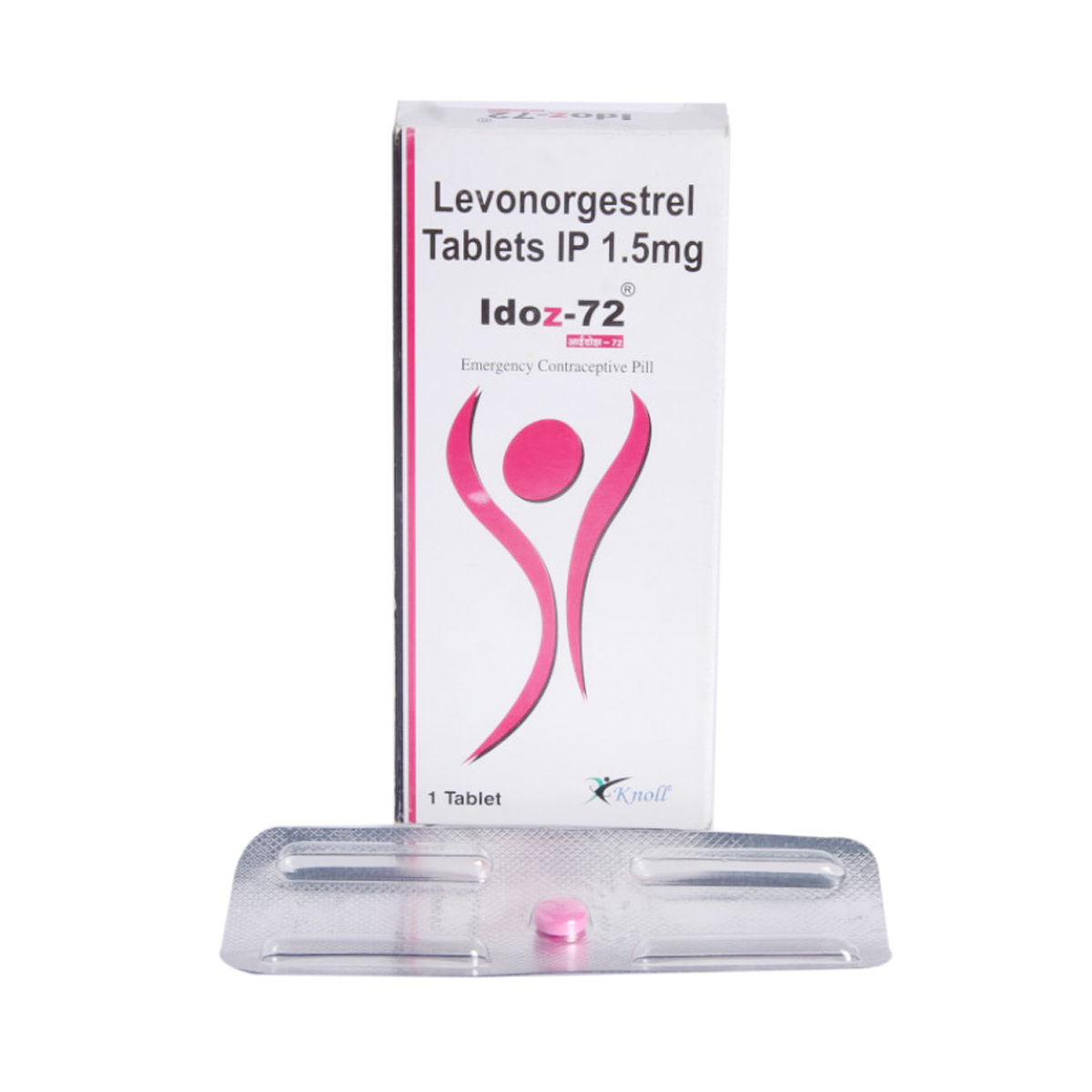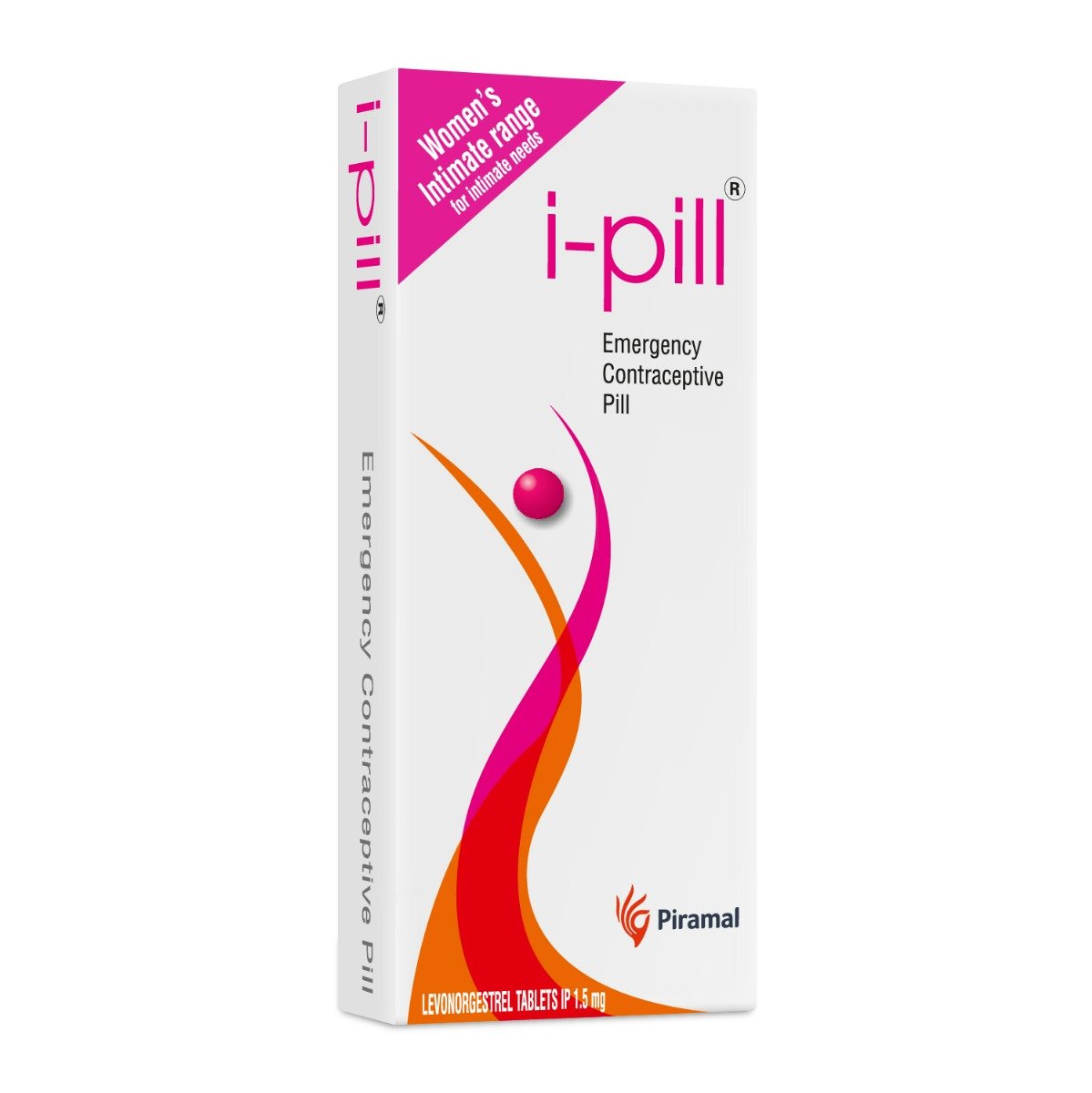Levonorgestrel
About Levonorgestrel
Levonorgestrel is a female hormone called progestin (a form of progesterone) used to prevent unintended pregnancy and hormone therapy. Levonorgestrel is used as a single agent in emergency contraception, and as a hormonal contraceptive released from an intrauterine device (IUD). Levonorgestrel is the most commonly used emergency contraceptive. Unintended pregnancy is a pregnancy that occurred either unwanted when no children or no more children were desired. Also, pregnancy is mistimed, such as the pregnancy occurred earlier than desired.
Levonorgestrel contains 'Levonorgestrel', which prevents the release of an egg from the ovary (female reproductive cells) or prevents fertilization of an egg by sperm (male reproductive cells). Levonorgestrel may also change the lining of the uterus to prevent the development of a pregnancy. Levonorgestrel does not have any effect if you are already pregnant hence does not cause abortion.
Levonorgestrel should be taken preferably within 12 hours and not later than 72 hours (3 days) of having unprotected sex or contraceptive failure. In some cases, you may experience nausea, vomiting, lower abdominal pain, tiredness, headache, diarrhoea, dizziness and uterine bleeding. Most of these side effects of Levonorgestrel subside with time. However, if the side effects are persistent, reach out to your doctor.
Do not take Levonorgestrel, if are allergic to Levonorgestrel or any of the ingredients. Do not take Levonorgestrel if you are already pregnant, Levonorgestrel cannot terminate the pregnancy. Please consult your doctor before taking Levonorgestrel, if you are a breastfeeding mother as it may pass through the milk to the baby. Do not use Levonorgestrel if you have heart fitted with an artificial valve, have heart diseases like high blood pressure or high blood cholesterol levels (increased fat in your blood), have asthma, have blood clot problems, have a bleeding disorder, have liver or kidney disease, have anaemia (low haemoglobin), salpingitis (inflammation of the fallopian tubes) or otherwise malnourished. Levonorgestrel is known to cause sleepiness, so driving or operating machinery should not be done. St John’s Wort (a natural remedy used to treat mild depression) should not be taken when taking Levonorgestrel as it is known to interact.
Uses of Levonorgestrel
Medicinal Benefits
Levonorgestrel contains 'Levonorgestrel' is a progestin (female hormones) used for emergency contraception within 12 hours and not later than 72 hours (3 days) of having unprotected sex or contraceptive failure. It works by preventing the release of an egg from the ovary (female reproductive cells) or preventing fertilization of an egg by sperm (male reproductive cells). Levonorgestrel may also change the lining of the uterus to prevent the development of a pregnancy. Levonorgestrel does not have any effect if you are already pregnant hence does not cause abortion.
Directions for Use
Storage
Side Effects of Levonorgestrel
- Nausea
- Vomiting
- Lower abdominal pain
- Tiredness
- Headache
- Diarrhea
- Dizziness
- Uterine bleeding
Drug Warnings
Do not take Levonorgestrel, if are allergic to Levonorgestrel or any of the ingredients, have a heart fitted with an artificial valve, have heart diseases like high blood pressure or high blood cholesterol levels (increased fat in your blood), have asthma, have blood clot problems, have a bleeding disorder, have liver or kidney disease, have anemia (low haemoglobin), salpingitis (inflammation of the Fallopian tubes) or otherwise malnourished. Taking Levonorgestrel in these conditions can cause life-threatening conditions in an individual. Levonorgestrel is known to cause sleepiness, so driving or operating machinery should not be done. Levonorgestrel can only prevent you from becoming pregnant if you take it within 72 hours of unprotected sex. If you are already pregnant, Levonorgestrel cannot terminate the pregnancy, so it is not an abortion pill. St John’s Wort (a natural remedy used to treat mild depression) should not be taken when taking Levonorgestrel as it is known to interact. Use caution while driving a motor vehicle, as dizziness or drowsiness may occur. Let your doctor know if you are a breastfeeding mother. Your doctor will weigh the benefits and any potential risks before recommending it. You should not take Levonorgestrel without a doctor's advice. Levonorgestrel is not recommended for children younger than 16 years old. Levonorgestrel is not intended for use in the first trimester of pregnancy.
Drug Interactions
Drug-Drug interaction: Levonorgestrel interacts with anti-epilepsy medicines (primidone, phenytoin, carbamazepine), medicines used to treat tuberculosis (rifampicin, rifabutin), medicines used to treat HIV (ritonavir, efavirenz) medicine used to treat fungal infections (griseofulvin, ketoconazole, itraconazole, posaconazole).
Drug-Food Interaction: Levonorgestrel interacts with St. John's wort (an antidepressant herbal supplement).
Drug-Disease Interaction: Levonorgestrel should be taken with caution in people who have a bleeding problem, confirmed or suspected ectopic pregnancy, heart problem, liver or kidney disease, vaginal bleeding, porphyria (an inherited blood disease that may cause nervous system or skin problems).
Drug-Drug Interactions Checker List:
Safety Advice

Alcohol
cautionAlcohol is not known to cause any unpleasant side effects if taken along with Levonorgestrel. But avoid alcohol consumption while taking Levonorgestrel.

Pregnancy
unsafeLevonorgestrel use during pregnancy or suspected pregnancy is contraindicated. Consult your doctor for further information.

Breast Feeding
unsafeLevonorgestrel should not be taken if breastfeeding as it may pass through the milk to the baby.

Driving
cautionLevonorgestrel can affect your ability to drive or use machines. However, if you feel tired or dizzy do not drive or operate machinery.

Liver
cautionLevonorgestrel to be taken with caution, especially if you have a history of Liver diseases/conditions. The dose may have to be adjusted by your doctor.

Kidney
cautionLevonorgestrel to be taken with caution, especially if you have a history of kidney diseases/conditions. The dose may have to be adjusted by your doctor.

Children
cautionLevonorgestrel is not recommended for children below the age of 16. If necessary, your doctor will decide whether to give Levonorgestrel or not.
Habit Forming
Diet & Lifestyle Advise
- Opt for a diet rich in whole grains, fruits, veggies, and low-fat dairy products.
- Quitting smoking and not drinking alcohol is the best strategy to lower the risk of any complications.
- Avoid chronic stress and physical exercise like running as it might increase vaginal bleeding.
- Monitor your blood pressure daily and if there is too much fluctuation, then immediately contact your doctor.
- Take a pregnancy test about a week after you take Levonorgestrel.
- Try to include heart-healthy omega 3 fatty acid-containing food drinks in your daily diet. You can also use low-fat cooking oil like olive oil, soybean oil, canola oil, and coconut oil to lower your elevated blood pressure.
Special Advise
- Take Levonorgestrel preferably within 72 hours (3 days) of having unprotected sex or contraceptive failure.
- Contact your doctor immediately if you experience heavy vaginal bleeding after taking this medicine.
- Consult your doctor if your periods are delayed by more than 7/10 days for a pregnancy test.
Patients Concern
Disease/Condition Glossary
Unintended pregnancy is a condition of pregnancy that occurred either unwanted when no children or no more children were desired. Also, pregnancy is mistimed, such as the pregnancy occurring earlier than desired. Most unintended pregnancies result from not using contraception or from using contraceptives inconsistently or incorrectly.
FAQs
Levonorgestrel is not known to affect any future chances of pregnancy. Consult your doctor for further advice.
Some of the common side effects of Levonorgestrel are nausea, vomiting, lower abdominal pain, tiredness, headache, diarrhea, dizziness and uterine bleeding in some cases.
Levonorgestrel (tablet) is not indicated for regular birth control. It is only used as emergency contraception (within 72 hours) after unprotected sex or contraceptive failure.
Levonorgestrel does not affect fertility. Use contraception during sexual intercourse as it may lead to unwanted pregnancy if you are not planning it.
Do not take Levonorgestrel, if you have heart fitted with an artificial valve, heart diseases like high blood pressure or high blood cholesterol levels (increased fat in your blood), confirmed or suspected ectopic pregnancy, have asthma, have blood clot problems, have a bleeding disorder, have liver or kidney disease, have anemia (low hemoglobin) or otherwise malnourished. Taking Levonorgestrel in these conditions can cause life-threatening conditions in an individual.




